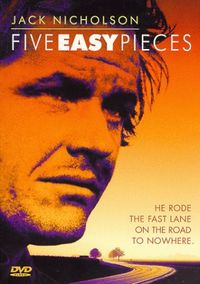
It was a maroon-robed exodus today as many monks piled onto the buses headed for Gaya, Mussoorie, Shimla, Mundgod and all other Buddhist outposts following the conclusion of the Dalai Lama's teachings. I sat in McLlo's window taking photos that had that magical afternoon glow, watching the monks tie their packages atop the rooftop luggage racks, shake hands through the windows and trade numbers on their cell phones. It felt like the last day of school. When a whole busload of monks waved goodbye like schoolkids on an expedition I waved from the restaurant window. They all waved back delightedly.
A few Hindu holy men walked around half naked with dreadlock beards and tridents, looking out of place like Shriners who'd missed the exit and ended up at the wrong convention. Varanasi is thattaway, Baba!
Monks are the quasi-celebrities of the town; everyone wants to take photos with them and they obligingly provide near-constant photo opportunities for tourists. Somehow having a monk in a photo automatically makes it cool. Refreshjngly unlike the Hindu holy men, they never ask for money in exchange for this public service.
Then I trotted down the rocky hillside trail beyond Om Hotel, stopping to play with Tashi, the resident Lhasa Apso, to see the Tse Chokling monastery. I had heard that even outsiders can rent rooms there. I like the monastic vibe but am too fond of late-night writing hours to make it in before the gates close.
Don't take your monks to town, son....
After all this holiness it was time for some pop culture entertainment. Walk the Line, the Johnny Cash biopic, was playing downstairs at the OOFCSS DVD Theatre (Out of Focus, Crappy Sound System). What do you want for thirty rupees? (less than $1.00).
My fervent devotion to The Man in Black is well known. Walk the Line was not at all earth-moving, but takes place primarily in Tennessee and of course, features some of the best songs ever written, unfortunately sung anew by the stars (bad idea, who could possibly step-to?) instead of lipsynched to the originals. I think I scared the New England blue-state Teva-sporting dharma babies by knowing all the words to "Jackson" and "Folsom Prison Blues."
Well you asked me if I'll forget my baby I guess I will, someday,
I don't like it
But I guess things happen that way
The only problem with this movie, in my situation, is that is makes me want to hear the original music loud and clear, and I'm nowhere near a place to buy or hear it. The scenes on the lake in Hendersonville made me homesick for a land where people don't pee on the street, and they actually put screens on the windows to keep out mosquitos. (Don't ask. For some reason, this is a new concept in India....or at least a rare one. Instead, there are open windows with bars to keep out intruders, but no glass and no screens. How is it that we have no malaria in the States, yet plenty ways to keep out mosquitos, and the reverse is true here?)I don't like it
But I guess things happen that way
This movie is required viewing for Indian friends who don't understand why I don't understand the way they relate to their families. It features good old have-it-out, door-slammin', back-talkin,' plate-throwin', Southern Baptist families complete with disapproving stern father figure. Thank God Johnny didn't pay him no never-mind.
Well, I knew that snake was my own sweet dad From a worn-out picture that my mother'd had, And I knew that scar on his cheek and his evil eye. He was big and bent and gray and old, And I looked at him and my blood ran cold And I said: "My name is 'Sue!' how do you do!
Now you gonna die!"
Now you gonna die!"
If Mick Jagger had been Indian, he'd have stayed in the London School of Economics and become an accountant.



















